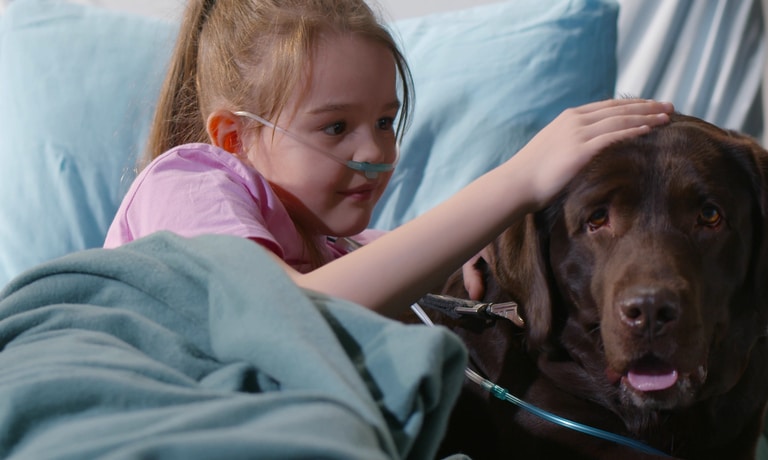
Dogs have an incredible ability to bring comfort and joy into people’s lives. Some dogs, however, possess the unique qualities that make them perfect for therapy work. The signs your dog would be a great therapy animal often reveal themselves through your dog’s natural disposition, behaviors, and interactions with others. If you’ve been wondering whether your furry friend has what it takes, look for these traits.
A Calm and Gentle Demeanor
Therapy dogs need to handle a variety of situations without becoming overly excited or nervous. A calm dog feels at ease in noisy environments, around sudden movements, or in the presence of unfamiliar people. Whether in a hospital, school, or nursing home, a gentle demeanor reassures those around them, making the dog an instant source of comfort.
A Love for People and Social Settings
Dogs that adore human interaction and thrive in social settings often make wonderful therapy animals. A friendly pup that welcomes attention from strangers, young children, or seniors demonstrates the outgoing nature essential in therapy work. Their willingness to connect with people creates meaningful and healing interactions, enhancing their ability to uplift others.
A Reliable and Well-Trained Nature
Therapy animals must follow basic commands and remain focused, even in challenging circumstances. A dog that always listens to you and stays composed around distractions will be able to handle the demands of therapy environments. Training your dog to respond to commands like “sit,” “stay,” and “leave it” builds the foundation necessary for successful therapy visits.
Intuition and Emotional Sensitivity
Some dogs have a remarkable ability to sense emotions in people. They appear to know when someone is sad, stressed, or in need of extra love and attention. These empathetic dogs can provide a sense of calm during therapy sessions and make a lasting impact. For example, animal-assisted therapy can offer many benefits to children with autism, as they frequently form special, soothing connections with intuitive therapy dogs.
Wrapping It Up
Your dog might already be showing traits that reflect their natural potential as a therapy animal. By paying attention to their demeanor, behavior, and emotional sensitivity, you can better understand their suitability. Signs your dog would be a great therapy animal include calmness, a love for people, strong training, and a knack for emotional connection. If you’ve spotted these in your own pup, they just might have what it takes to make the world a kinder, brighter place.




